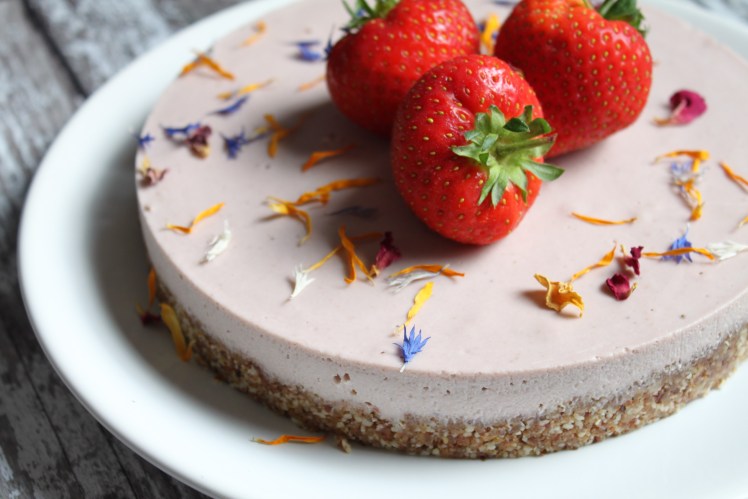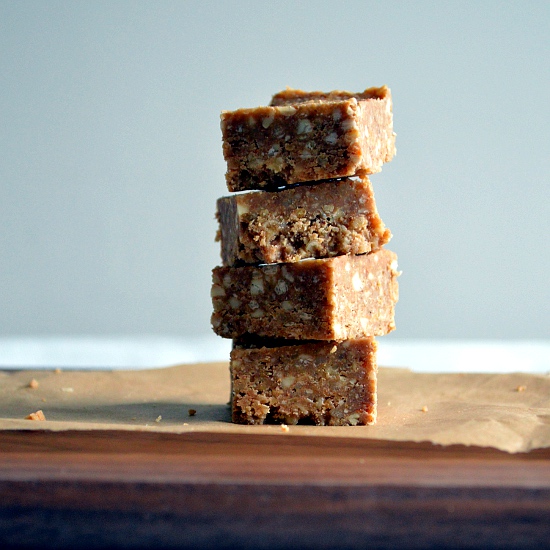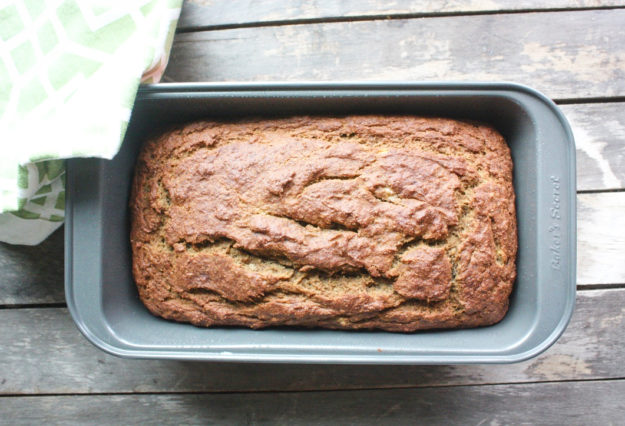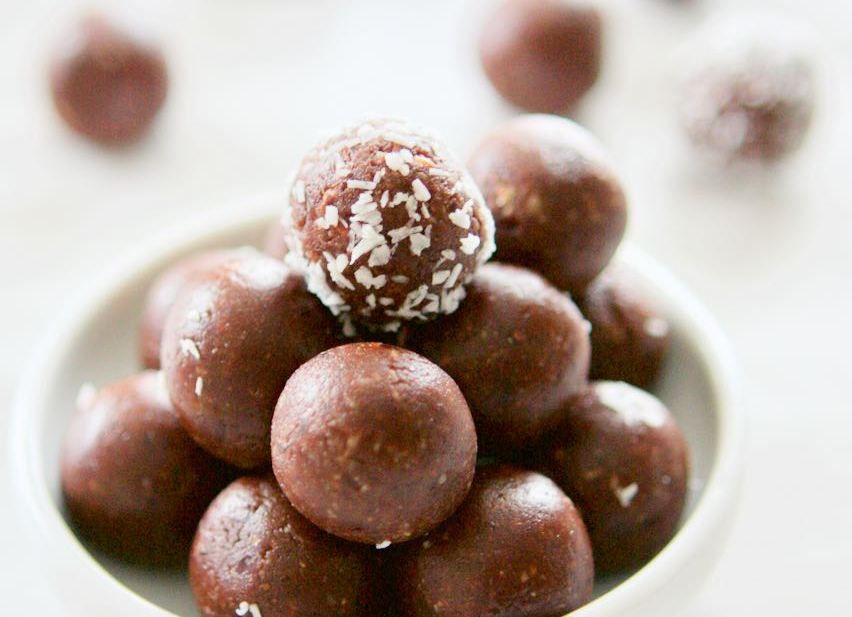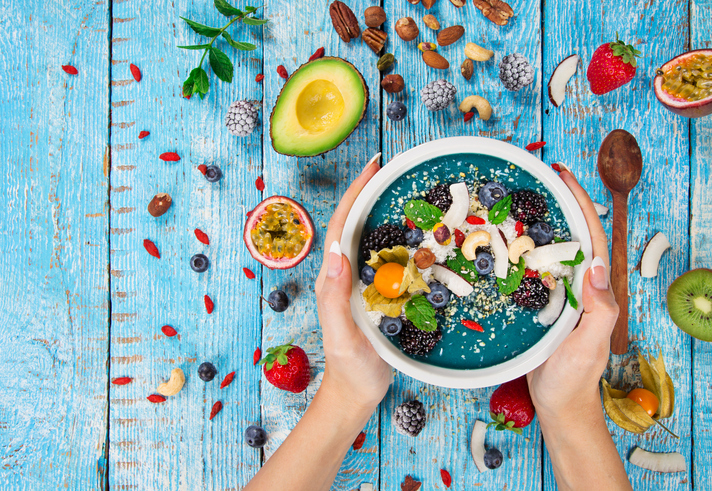Guide to Natural Sweeteners + The Best Naturally Sweetened Recipes
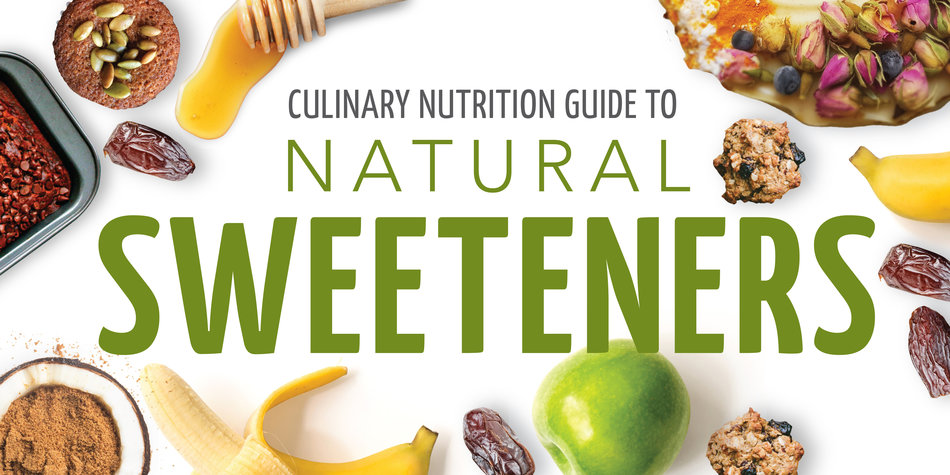
What would life be like without the sweetness of dairy-free chocolate, cupcake frosting or ice cream? A world without natural sweeteners isn’t one we want to live in! You’ve probably heard the news that white, refined sugar is bad for your health – and yes, unfortunately, that is true. However, when natural sweeteners are on the scene you’ll reap the enjoyment along with some decidedly awesome benefits. Our guide to natural sweeteners gives you the lowdown, along with our favourite naturally sweetened recipes for inspiration.
What are Natural Sweeteners?
Refined sugars are initially derived from plants – like sugar cane, sugar beets and corn. Unfortunately, in the manufacturing process, those plants are completely stripped of their nutrients, leaving us with a product that is void of any health benefits and what’s more, our body needs to use its precious resources to metabolize them. Natural sweeteners, on the other hand, are in their natural state (or very close to it, with minimal alteration or processing) and this leaves them with nutrients that can help support a more healthful dessert habit.
Isn’t All Sugar Bad for You?
Technically, any sweetener – whether refined or natural – is going to raise blood sugar levels. However, natural sweeteners contain vitamins, minerals, enzymes and more that offer benefits, as opposed to refined sweeteners that solely deplete us. Also, when natural sweeteners are paired with other nutrient-dense ingredients such as protein, fat and fibre like nuts, seeds, coconut oil, ghee, coconut products (coconut butter, shredded coconut, etc.), superfoods or fruit, you’ll end up with a healthier treat overall.
General Substitution Guide
Some general tips for making substitutions:
- Try to sub a natural liquid sweetener for a refined liquid sweetener, and a natural dry sweetener for refined dry sweetener, especially in baking. This helps to keep the ratios even and you don’t have to fuss around with altering other ingredients in the recipe.
- Try reducing the amount of sugar you use. While many natural sweeteners can be replaced 1:1, we like to see if we can reduce our dependency, even on the natural sugars. If a recipe calls for 1/2 cup sugar, we might try a 1/4 cup to a 1/3 cup instead and go from there.
More Healthy Natural Sweeteners Inspiration
We have plenty of great recipes made with natural sweeteners for you below, plus:
- 20 Best Dairy-Free Ice Cream Recipes
- 20 Amazing Healthy Holiday Desserts
- 20 Best Dairy-Free Elixir Recipes
- 20 Best Dairy-Free Chocolate Recipes
- 20 Best Real Food Healthy Frosting Recipes
- Gluten-Free Flour Guide + Substitution Reference
Get your FREE Natural Sweeteners Guide plus 35 more free resource guides!
Fill out the form below for instant access.
Free Resource Library
Enjoy more than 40 downloadable guides, recipes, and resources.
Guide to Natural Sweeteners
Raw Honey
Key Health Benefits: Contains enzymes, amino acids, iron, calcium, magnesium and Vitamin B6. Has anti-microbial and anti-bacterial properties.
Flavour Profile: Depends on where you live, the season and what flowers the bees are pollinating. Honey can be fruity, floral, caramel-esque, woody.
How to Substitute: Use 1:1 for a refined liquid sweetener
Recipe to Try: Grain-Free Thumbprint Cookies or Pumpkin Energy Balls
Maple Syrup
Key Health Benefits: Anti-oxidant rich, high in manganese, zinc (for immunity + hormone health) and calcium.
Flavour Profile: Depends on the grade (light, medium, dark) and when the tree was tapped. Generally, the lighter grades are more gentle and mild, while the darker grades are deeper, richer and nuttier.
How to Substitute: Use 1:1 for a refined liquid sweetener
Recipe to Try: Strawberry No-Cheesecake, Gluten-Free Breakfast Black Bean Brownies or Maple Vanilla Chia Seed Pudding
Coconut Syrup
Key Health Benefits: Like coconut sugar, it has minerals, amino acids, Vitamin C and B vitamins, and is low on the glycemic index.
Flavour Profile: It has a light, caramel flavour.
How to Substitute: Use 1:1 for a refined liquid sweetener
Recipe to Try: Coconut Buckwheat Porridge
Coconut Sugar
Key Health Benefits: An abundant source of minerals, 17 amino acids, Vitamin C for immunity and B vitamins for energy and managing stress. Low on the glycemic index as well.
Flavour Profile: It has a light, caramel flavour.
How to Substitute: Use 1:1 for a refined dry sweetener
Recipe to Try: Paleo Chocolate Hazelnut Cake with Salted Almond Butter Whip or Apricot Granola Bars
Molasses
Key Health Benefits: A by-product of refining cane sugar, but unlike processed sugar, it is full of nutrients like iron for energy, calcium for bone health, magnesium, Vitamin B6 and selenium.
Flavour Profile: Depends on the variety – lighter molasses is mild, while darker varieties can be strong and even slightly bitter.
How to Substitute: Molasses has a strong flavour, so you may not want to sub it 1:1 for a liquid sweetener. Start off by using 1/2 molasses, and 1/2 of another natural sweetener.
Recipe to Try: Gingerbread Donut Holes or Gingerbread Granola
Stevia
Key Health Benefits: It doesn’t affect blood sugar levels, making it a common sweetener for diabetics. It can help with weight control (because it’s calorie-free) and blood pressure.
Flavour Profile: Very, very sweet – it’s about 150 times sweetener than sugar. Some brands have a bitter, metallic taste – we prefer to use green powdered stevia rather than the clear liquid or white powders.
How to Substitute: Use 1 tsp of stevia for 1 cup of dry sugar
Recipe to Try: Very Cherry Fruit Snacks or Healthy Baked Waffles
Yacon Syrup
Key Health Benefits: Derived from a tuber, it has 20 essential amino acids, antioxidants and high levels of potassium, calcium, magnesium, iron and phosphorus. Yacon supports heart health, boosts the immune system and contains fructooligosaccharides (FOS), which are prebiotics that help with the growth of beneficial bacteria in the digestive tract.
Flavour Profile: Deep and rich, similar to caramel or molasses.
How to Substitute: Use 2/3 cup for 1 cup liquid sweetener
Recipe to Try: Mint Protein Bars or Paleo Graham Crackers
Lucuma
Key Health Benefits: Rich in fibre, iron, beta carotene and Vitamin B3, which helps us synthesize energy from food.
Flavour Profile: Has a mild, caramel flavour
How to Substitute: Use 1:1 for a refined dry sweetener
Recipe to Try: Lucuma Ice Cream or Nutty Lucuma Bars
Monk Fruit Sugar
Key Health Benefits: No calories or impact on blood sugar levels, contains some Vitamin C.
Flavour Profile: Like stevia, monk fruit is much sweeter than sugar – some sources report it is anywhere from 150-400 times sweeter than sugar!
How to Substitute: Technically, you can swap it 1:1 for a dry sweetener. Given how sweet it is, you may want to alter that ratio based on your preference.
Recipe to Try: Flourless Chocolate Cake
Fresh Fruit (Applesauce, Bananas)
Key Health Benefits: Mashed or blended fruit contains all of the nutrients of their whole food counterparts. Apples are rich in fibre, Vitamin C, and other antioxidants, while bananas are high in fibre and potassium.
Flavour profile: Applesauce is quite mild in recipes, while banana has a stronger flavour.
How to Substitute: Use 1:1 for liquid sweeteners. Both applesauce and bananas are a great substitute for eggs in baking.
Recipe to Try : No Sugar Added Banana Nut Butter Muffins or Banana Skillet Bread.
Agave
Key Health Benefits: Rich in vitamins and minerals and a source of inulin (a prebiotic), low glycemic. Is controversial due to its high fructose content.
Flavour Profile: Like a combination of maple syrup and honey, much sweeter than sugar
How to Substitute: Depending on preference, sub 2/3 cup to 3/4 cup agave for 1 cup liquid sweetener
Recipe to Try: Sriracha Agave Cauliflower Wings
Date Sugar (Or Date Paste)
Key Health Benefits: Rich in fibre, potassium, magnesium and iron.
Flavour Profile: Similar to brown sugar, butterscotch-eque and caramel-like.
How to Substitute: Use 1:1 for a refined dry sweetener.
Recipe to Try: Raw Cacao Hazenut Bites or Chocolate Cherry Bites
Xylitol
Key Health Benefits: Low calorie and low glycemic, also beneficial for dental health.
Flavour Profile: Very similar to white sugar.
How to Substitute: Use 1:1 for a refined dry sweetener. Too much xylitol can have a laxative effect though, so proceed with caution! You may want to start off slowly.
Recipe to Try: Turmeric Strawberry Lemonade

Header image: iStock/Manuta
Free Resource Library
Enjoy more than 40 downloadable guides, recipes, and resources.















